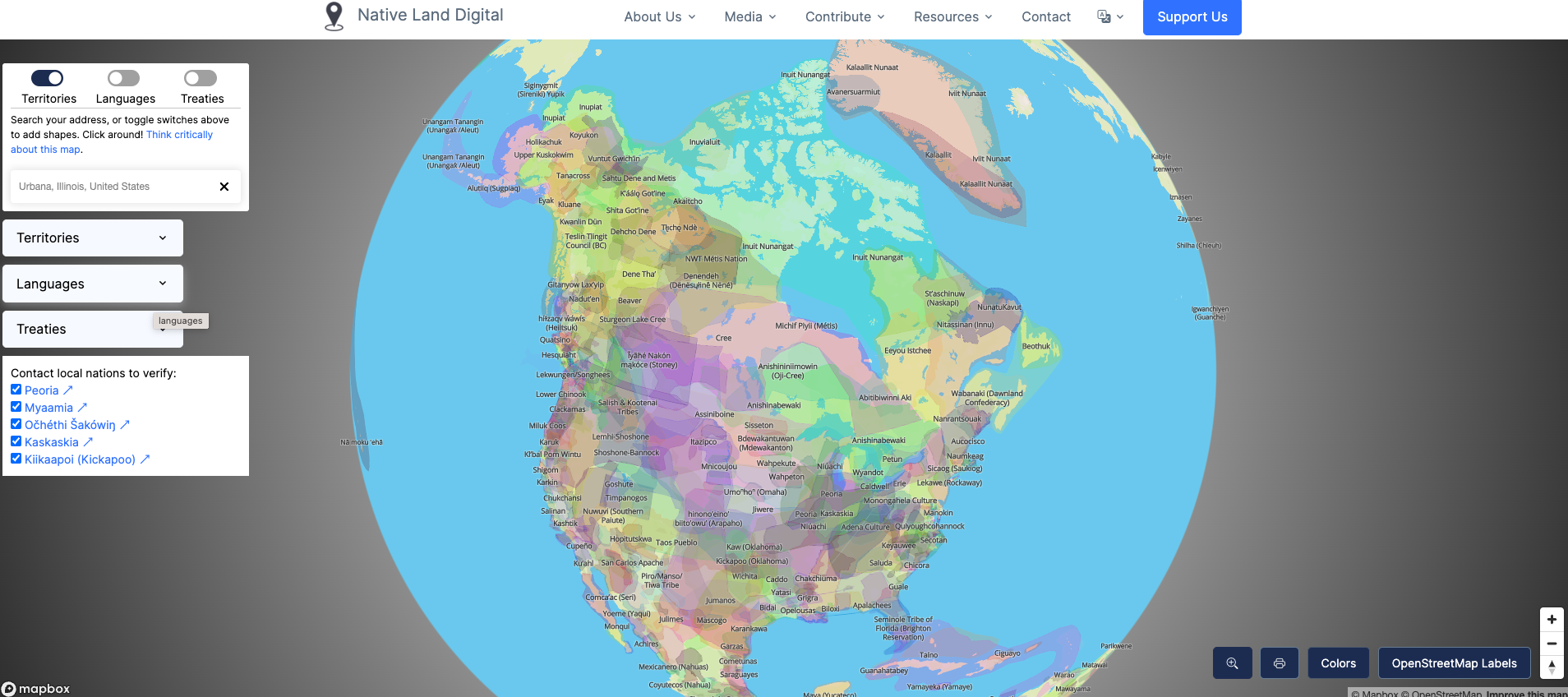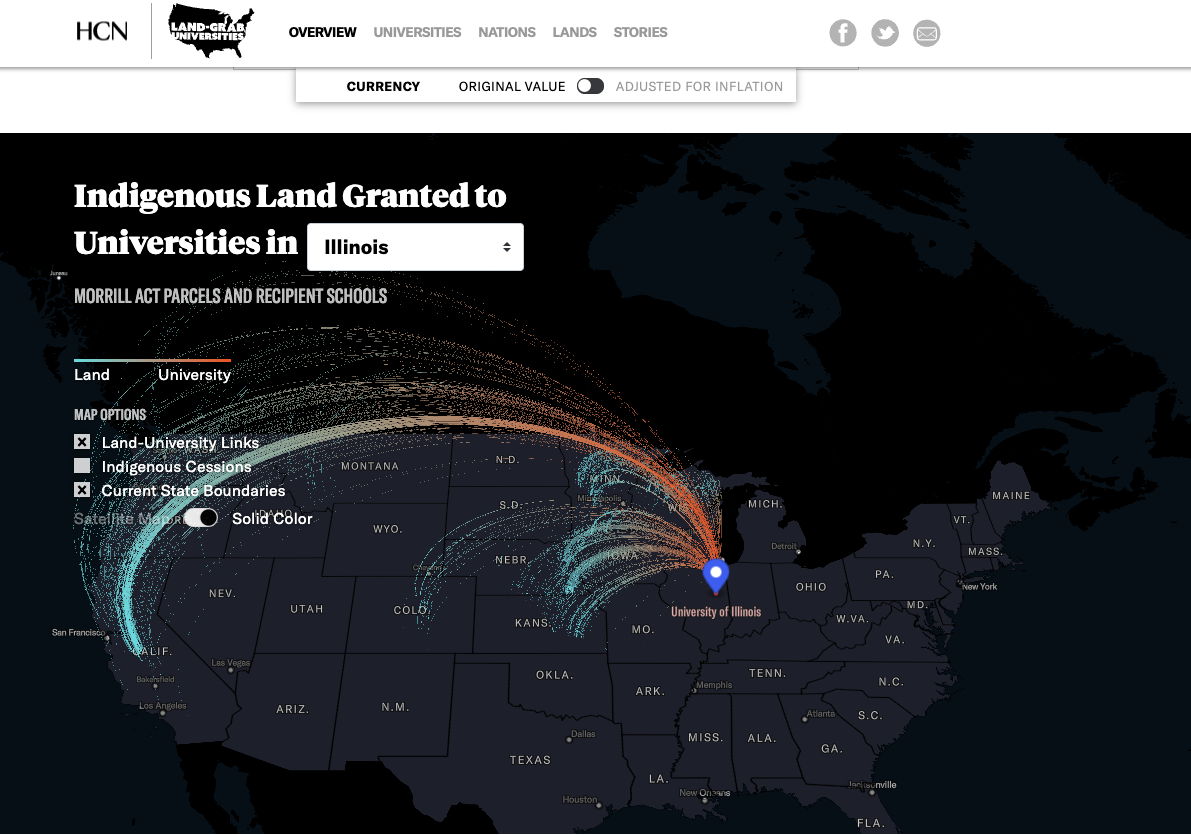Course Policies
COVID-19 & Attendance*
The iSchool expects students to attend all classes except in cases of emergency. Student Code on Attendance: http://studentcode.illinois.edu/article1/part5/1-501/
Our COVID-19 Policies: Attendance and Life Happens
At any point during the semester, if you believe that you might be sick or been exposed to Covid, please refrain from attending in-person class. I am happy to make up missed content (though within reason, I can’t reteach multiple weeks) and also to negotiate missed assignments. We are still in a global pandemic and so please prioritize your health.
I don’t require doctor notes for any absences and will leave it up to your judgment on whether you feel comfortable coming to class or not. But please keep in mind that if you miss a substantial portion of discussions, it will be difficult to complete the final project (happy to help discuss on a case-by-case basis).
Information Overload Days
Since we are still in a global pandemic, at points throughout the semester you might simply need a break. Instead of missing class because you are overwhelmed with your workload, please let me know how you are feeling and please consider taking an information overload day rather than missing class outright. If you let me know in advance that you need more bandwidth for whatever reason, you will be excused from the assigned materials and in-class discussion. Instead you will be expected to actively listen to the discussion and then consult with the instructor about how to make up any relevant assignments at a later date. I realize the workload for this course is significant and that you are balancing a number of other commitments at the same time, so information overload days are intended to help you manage your stress and at the same time help you not fall behind in the course. You are welcome to two of these without any questions, but after that point it would be helpful to have a conversation about your situation so that you don’t fall behind.1
Worst case scenarios
In the scenario where I am no longer able to teach due to COVID-19, I will do my best to find substitute instructors through the iSchool. If you or someone close to you becomes ill and you are no longer able to attend class or complete the final project, I will in consultation with you determine a final grade based on your existing work, and/or advocate for you to be able to move the course to pass/fail (I’m new to the iSchool but assuming it has this option).
Depending on the urgency of your situation, I realize that communicating with your instructor is a low priority, but please get in touch when you can to let me know if anything comes up.
Communication and Respect
We will be meeting in person, barring any emergencies, but we will also be using Slack, an asynchronous communication platform, to encourage communication beyond our in-person meetings. Our Slack team is the DH@UIUC Slack (DH stands for digital humanities) and you can access the link via Canvas. Once you have joined the Slack team, you should join our #is310-2024 channel (or ask one of the instructors for assistance joining). We will discuss more about Slack in class and you can find more information about the platform on our course website.
You are also welcome to set up meetings with the instructor using this calendly link https://calendly.com/zleblanc/chat-with-prof-zoe or to email the instructor at zleblanc@illinois.edu.
Much of this course is experimental, and students often have a variety of backgrounds and previous relevant experience. This diversity is what makes our course so unique and enriching. Consequently, respect is a core component of our classroom culture, both in in-person interactions and on virtual platforms like Slack. Embracing a respectful attitude in all forms of communication is crucial, as it ensures a productive and positive learning environment. Whether in class discussions, Slack messages, or emails, being considerate and understanding of different perspectives and experiences is key. Remember, every opinion, question, and idea deserves a respectful response and consideration.
Rule of thumb from here on out is when in doubt, ask questions and over-communicate, but do so respectfully!
Statement of Inclusion*
https://diversity.illinois.edu/about/senate-diversity-resolution/ As the state’s premier public university, the University of Illinois at Urbana-Champaign’s core mission is to serve the interests of the diverse people of the state of Illinois and beyond. The institution thus values inclusion and a pluralistic learning and research environment, one in which we respect the varied perspectives and lived experiences of a diverse community and global workforce. We support diversity of worldviews, histories, and cultural knowledge across a range of social groups including race, ethnicity, gender identity, sexual orientation, abilities, economic class, religion, and their intersections.
Religious Observances*
In keeping with our Statement of Inclusion and Illinois law, the University is required to reasonably accommodate its students’ religious beliefs, observances, and practices in regard to admissions, class attendance, and the scheduling of examinations and work requirements. Religious Observance Accommodation Request form: https://cm.maxient.com/reportingform.php?UnivofIllinois&layout_id=19 Other accommodations may be available.
Accessibility Statement*
To ensure disability-related concerns are properly addressed from the beginning of the semester, I request that students with disabilities who require assistance to participate in this class contact me as soon as possible to discuss your needs and any concerns you may have. The University of Illinois may be able to provide additional resources to assist you in your studies through the office of Disability Resources and Educational Services (DRES). This office can assist you with disability-related academic adjustments and/or auxiliary aids. Please contact them as soon as possible by visiting the office in person: 1207 S. Oak St., Champaign; visiting the website: http://disability.illinois.edu; calling (217) 333-4603 (V/TTY); or via e-mail disability@illinois.edu. NOTE: I do not require a letter from DRES in order to discuss your requested accommodations.
Mental Health Resources*
Diminished mental health, including significant stress, mood changes, excessive worry, substance/alcohol abuse, or problems with eating and/or sleeping can interfere with optimal academic performance, social development, and emotional wellbeing. The University of Illinois offers a variety of confidential services including individual and group counseling, crisis intervention, psychiatric services, and specialized screenings at no additional cost. If you or someone you know experiences any of the above mental health concerns, it is strongly encouraged to contact or visit any of the University’s resources provided below. Getting help is a smart and courageous thing to do –for yourself and for those who care about you.Counseling Center: 217-333-3704, 610 East John Street Champaign, IL 61820McKinley Health Center: 217-333-2700, 1109 South Lincoln Avenue, Urbana, Illinois 61801. The counseling center has resources for all students even if they are not located in Illinois.
Academic and Self Integrity*
The iSchool has the responsibility for maintaining academic integrity so as to protect the quality of education and research in our school and to protect those who depend on our integrity. Consequences of academic integrity infractions may be serious, ranging from a written warning to a failing grade for the course or dismissal from the University. See the student code for academic integrity requirements: http://studentcode.illinois.edu/article1/part4/1-401/
Long story, short: don’t cheat. If you need help, see the instructor. I would rather you turn in work late, than have you plagiarize materials and have to report you for violating the student code.
We’ll discuss what constitutes plagiarism for the course (it gets thorny around coding sometimes), but a good rule of thumb is to cite as much as possible. All scholarship is a collective endeavor, and acknowledging those whose work has influenced you is both intellectually and politically imperative.
Sara Ahmed writes that citation serves as feminist bricks and feminist memory:
“Citation is how we acknowledge our debt to those who came before; those who helped us find our way when the way was obscured because we deviated from the paths we were told to follow. In this book, I cite feminists of color who have contributed to the project of naming and dismantling the institutions of patriarchal whiteness” (Ahmed 17). Acknowledging and establishing feminist genealogies is part of the work of producing more just forms of knowledge and intellectual practice. —Beverly Weber, Digital Feminist Collective2
AI Policy
This course explicitly allows the use of so-called AI tools, and we will be experimenting primarily with GitHub Co-Pilot throughout the semester for our programming related research and learning. Such a choice might seem strange given current discourses around AI, but this course’s approach to AI is premised on the belief that these tools are not going anyways and that we need to engage with them critically.
To that end, students are allowed and encouraged to use AI tools for various assignments and projects, and there is no requirement to explicitly mention the use of these tools in your submissions. That said, sharing experiences and insights about specific AI models or chatbots that you find particularly helpful is encouraged. Given the ability of these tools to impact how we work, the core focus of this semester will be utilizing these tools thoughtfully and intentionally to augment, but not replace hard work and creativity. We will also critically explore and consider how best to use these tools in ways that minimize potential harm to others and society.
To ensure that all students have equal access to these resources, we will only be utilizing AI tools that are free of charge. However, if you have concerns about costs associated with AI chatbots or other tools that you want to use in your final project, they are encouraged to reach out to the instructor for assistance and guidance.
Ultimately, AI is increasingly permeating every aspect of academia, as well as our day-to-day lives. Rather than shy away from this fact, we will explore how to integrate AI into our work in sustainable and responsible ways, reflecting on the impact of these technologies and using them to further your learning experience.
Land acknowledgement Statement*
Adopted by the University of Illinois in 2018 More information: https://chancellor.illinois.edu/land_acknowledgement.html
I/We would like to begin today by recognizing and acknowledging that we are on the lands of the Peoria, Kaskaskia, Piankashaw, Wea, Miami, Mascoutin, Odawa, Sauk, Mesquaki, Kickapoo, Potawatomi, Ojibwe, and Chickasaw Nations. These lands were the traditional territory of these Native Nations prior to their forced removal; these lands continue to carry the stories of these Nations and their struggles for survival and identity.
As a land-grant institution, the University of Illinois has a particular responsibility to acknowledge the peoples of these lands, as well as the histories of dispossession that have allowed for the growth of this institution for the past 150 years. We are also obligated to reflect on and actively address these histories and the role that this university has played in shaping them. This acknowledgement and the centering of Native peoples is a start as we move forward for the next 150 years.
While this acknowledgement is important, I find that these words can be difficult to understand or visualize. To help us understand this history, there are two phenomenal digital humanities projects. The first is Native Land Digital that actually visualizes the lands of these Native Nations, as well as all indigenous lands worldwide. Available at https://native-land.ca/ and built by a Canadian non-for-profit, I would highly encourage you to spend some time looking through the project to understand and see how this dispossession has shaped our very understanding of geography and political identity.

The second project is Land Grab Universities which looks specifically at how the Morill Act, signed in 1862, dispossessed tribal lands to fund the creation of public state universities. The project was built by Robert Lee, Tristane Ahtone, Margaret Pearce, Kalen Goodluck, Geoff McGhee, and Cody Leff and published by High Country News https://www.landgrabu.org/.

-
The concept of an information overload day is inspired and adapted from Ryan Cordell’s Building A Better Book Syllabus https://f19bbb.ryancordell.org/policies/ ↩
-
Beverly Weber, “The Politics of Citation” Digital Feminist Collective https://digitalfeministcollective.net/index.php/2018/01/13/the-politics-of-citation/ and Ahmed, Sara. Living a Feminist Life. Duke University Press Books, 2017. ↩